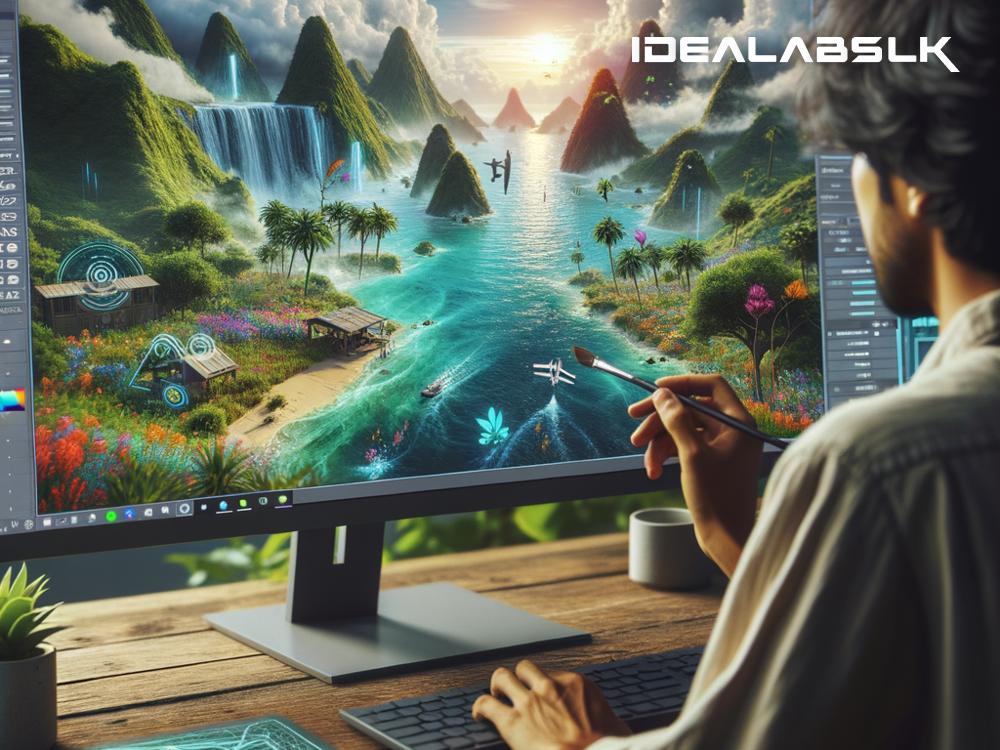How AI Will Boost Realism in Simulation Games by 2024: Dive into More Complex and Dynamic Worlds!
In the rapidly evolving world of video games, one genre that continuously captures the hearts of many is simulation games. These are the games that allow us to live out our wildest dreams, from managing sprawling cities to piloting aircraft across the globe. But as we step into 2024, a new trend is set to revolutionize how we experience these virtual worlds—thanks to Artificial Intelligence (AI). Let's explore how AI is about to take the realism of simulation games to unprecedented levels, making our virtual environments more complex, engaging, and dynamic than ever before.
A New Era of Realism
Imagine a city-building game where every inhabitant has their own life, reacting to the economy, environment, and decisions you make in real-time. Or think about a flight simulator that dynamically changes weather conditions based on actual atmospheric data. Sounds like the future, right? Well, by 2024, this level of detail and realism might become the new standard for simulation games, and it's all thanks to advancements in AI.
Crafting Detailed Worlds with AI
One significant way AI is enhancing simulation games is through the creation of detailed and dynamic environments. Until now, game environments had to be painstakingly crafted by human developers, with every tree, building, and character designed in advance. But with AI, these worlds can be generated automatically, scaling in complexity and diversity without requiring countless hours of manual labor.
For instance, an AI could be trained to understand the architectural styles of different cultures and then use this knowledge to create entire cities that are both unique and true to life. This means we could see simulation games featuring more varied and extensive worlds than ever before, with every playthrough offering a new and exciting experience.
Realistic NPCs: Bringing Virtual Populations to Life
Non-playable characters (NPCs) are the heart and soul of simulation games, filling our virtual worlds with life. By 2024, AI is expected to revolutionize how these characters behave, making them more realistic and unpredictable. Instead of following pre-programmed routines, AI-powered NPCs could have their own goals, emotions, and decision-making processes.
This leap would transform our virtual interactions dramatically. Imagine negotiating with a virtual city council that has its own political agendas or managing a football team where each player's performance is influenced by their personal life. The possibilities are endless, and AI is the key to unlocking this level of depth in simulation games.
Ever-Changing Game Worlds
Another area where AI is set to enhance realism is in creating dynamic, ever-changing game worlds. Traditional simulation games often feel static, with environments that don't evolve unless directly acted upon by the player. However, with AI, these worlds can grow and change on their own, reacting to a multitude of factors just like the real world.
For example, an AI could control the ecosystem of a virtual forest, with animal populations growing or shrinking based on food availability, weather patterns, and human activity. This would not only add a layer of challenge and unpredictability to simulation games but also increase their educational value by accurately demonstrating the complexity of natural systems.
Personalized Gaming Experiences
Finally, AI will make simulation games more personalized and adaptive to individual players. Based on your style of play, preferences, and past decisions, AI can modify game scenarios in real-time, offering a truly customized gaming experience. If a player enjoys challenging economic scenarios, the game could automatically create tougher market conditions. Or, if a player prefers a slower-paced, more relaxing experience, the AI could adjust the game dynamics to fit that preference.
Conclusion
As we look forward to 2024, it's clear that Artificial Intelligence will play a pivotal role in shaping the future of simulation games. With more complex and dynamic environments, realistic NPCs, ever-changing game worlds, and personalized experiences, AI is set to bring a degree of realism and immersion that was previously unattainable. So, buckle up, gamers! The future of simulation gaming is bright, and it's smarter than ever.

